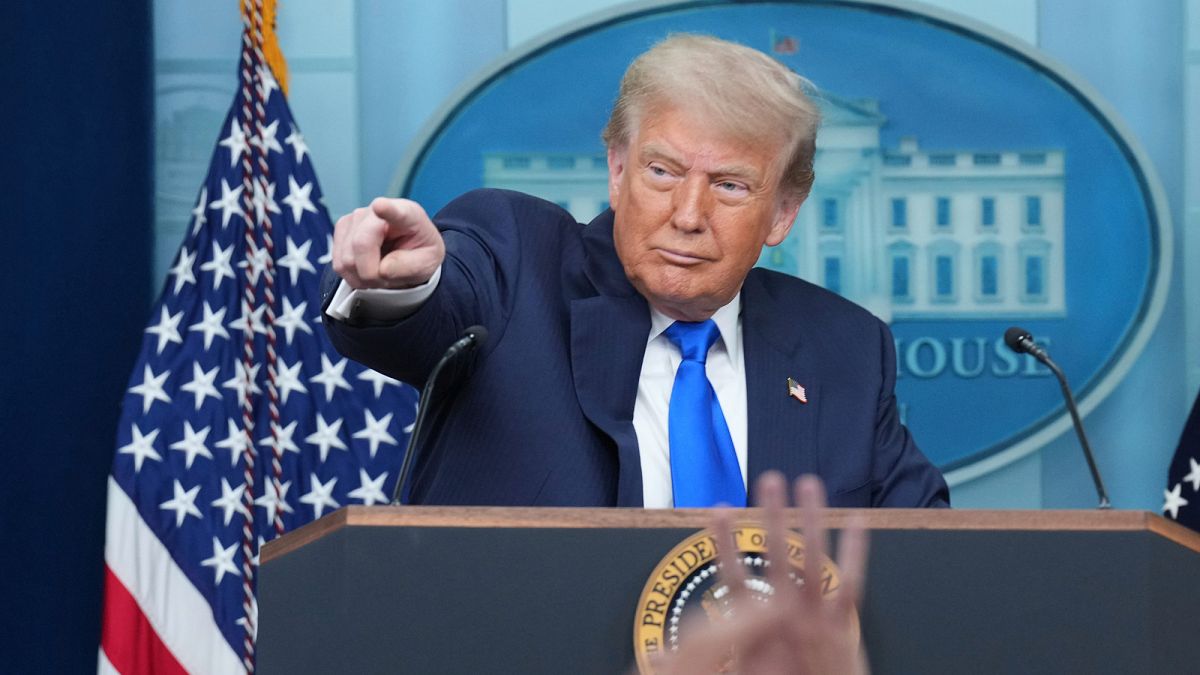

In recent days, several significant events have unfolded on the global stage, reflecting a world deeply interconnected and yet challenged by complex negotiations and policies. Each development carries implications for international relations and economies across the globe. Below, we explore these scenarios, capturing the essence of each and offering a calm reflection on their potential impacts.
Amid ongoing talks, former U.S. President Donald Trump made a decisive move by announcing the end of trade discussions with Canada due to a digital services tax. This levy, applied to Canadian and foreign tech giants like Amazon, Google, and others, imposes a 3% tax on revenue generated from Canadian users. This decision underscores the delicate balance trade negotiations often require and illustrates the tensions that can arise when countries implement policies perceived as unfavorable to trading partners.
Similarly, the U.S. sportswear leader Nike has been navigating challenges as it anticipates a $1 billion impact from U.S. tariffs, which is expected to affect its sales. Despite reporting falling revenues, Nike’s outlook provided some relief to investors, as reflected in a notable uptick in their share price. This scenario highlights the resilience of businesses as they adapt to geopolitical shifts while trying to maintain economic stability.
In a humanitarian context, the detention of six U.S. citizens for attempting to deliver rice and Bibles to North Korea serves as a poignant reminder of the complexities surrounding relations on the Korean Peninsula. As South Korea’s new government strives to ease tensions with Pyongyang, this incident underscores the intricate interplay of diplomatic gestures and regional stability efforts.
Meanwhile, in the Caribbean, authorities in the U.S. are addressing concerns regarding Haiti. A recent decision to revoke Temporary Protected Status for Haitian citizens has put over half a million individuals at risk of deportation, amidst a backdrop of severe violence and instability in Haiti. Ironically, this occurs just days after the U.S. warned its citizens about the dangers in Haiti. This juxtaposition highlights the often conflicting nature of diplomatic and domestic policies.
Turning to a positive note in international trade, the U.S. and China have reached an agreement aimed at accelerating rare-earth shipments to America, potentially alleviating supply chain constraints. This agreement comes as part of broader efforts to de-escalate trade tensions between two of the world’s largest economies. The announcement has already buoyed the stock market, reflecting optimism among investors and stakeholders alike.
Through these diverse yet interconnected narratives, we observe the constant flux of international relations, shaped by a tapestry of economic, political, and humanitarian threads. Each story reflects a fragment of the global landscape, illustrating both challenges and opportunities that lie ahead. As countries navigate these waters, careful diplomacy and thoughtful policy-making will remain essential to fostering harmony and progress on a global scale.
Source: {link}
